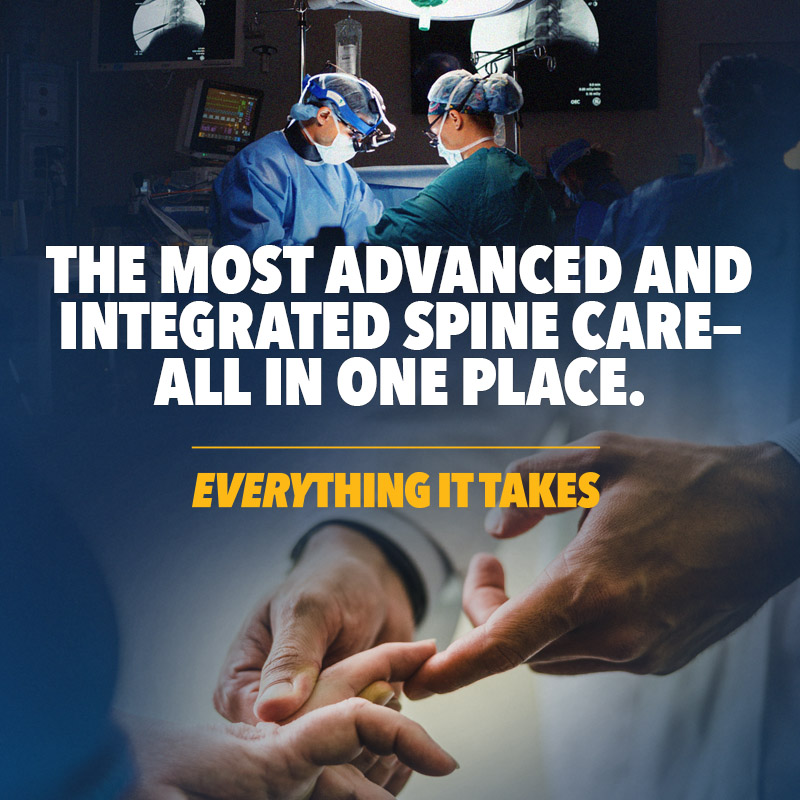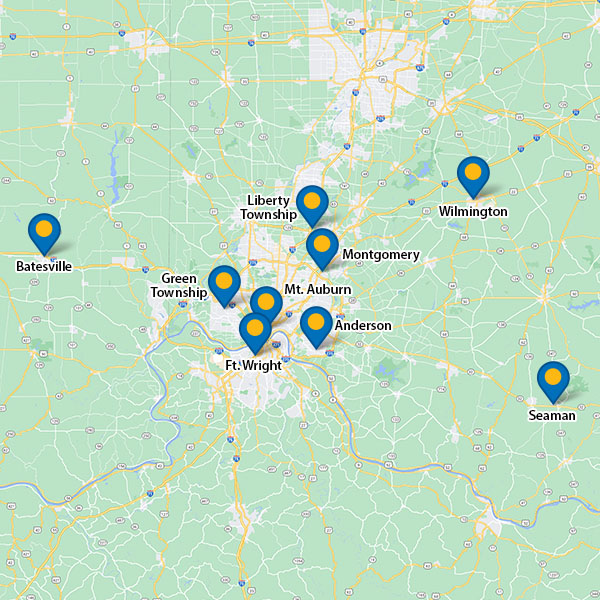Expert Spine Care, Centered Around You
At The Christ Hospital Health Network, our multidisciplinary spine team provides comprehensive, personalized care—from conservative treatments to advanced procedures and surgery. Whether you’re dealing with back pain, nerve symptoms, or spine-related mobility issues, we work together to find the right solution to get you moving again.
Request an Appointment
or Second Opinion
Fill out the form below to have a member of our team call you:
When is it Time to See a Spine Specialist?
When your back or neck pain interferes with your everyday tasks, it's time to see a spine specialist.
Make an appointment if you have these symptoms:
- Back pain that does not improve with time
- Back pain that worsens with activity
- Back pain that causes numbness, weakness or tingling in your arms or legs
- Problems with balance or controlling your bowels or bladder
Meet Your Spine Care Team
Spine Surgery
Specialists in advanced and minimally invasive procedures.
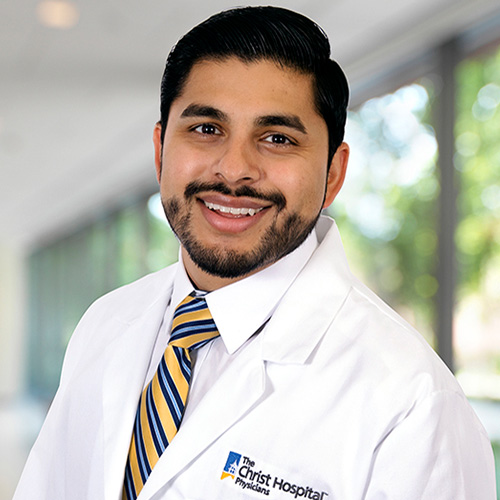
Jared Crasto, MD
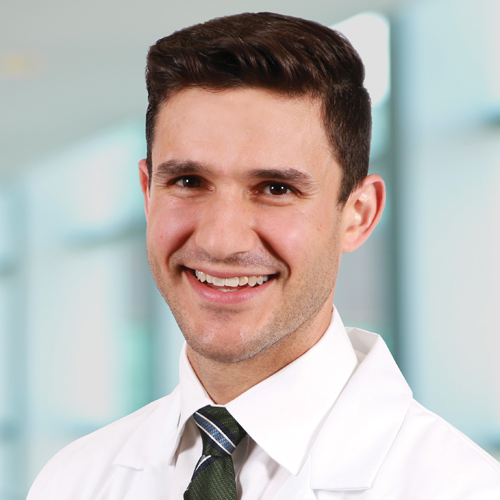
Ryan Seal, MD

Dave Brodbeck, PA-C
Physical Medicine & Rehabilitation
Non-surgical treatments including medication, physical therapy, and injections.

Jennifer Chung, MD
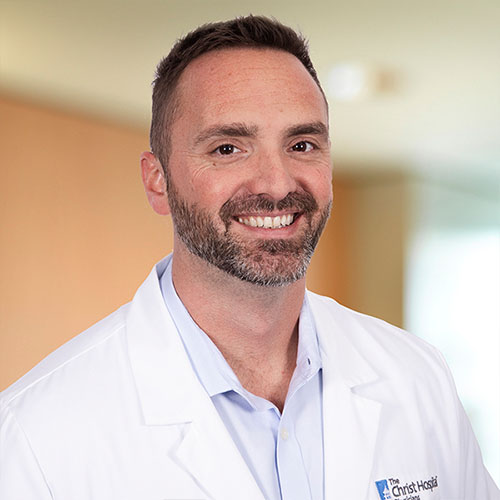
Nicholas Godby, MD

Travis McClain, DO, RMSK
Interventional Spine
Experts in image-guided procedures and targeted therapies to relieve pain and restore function — often avoiding or delaying surgery.

Robert Ernst, MD

C. Duane Bellamy, MD
Why choose The Christ Hospital?
We understand that life doesn’t stop because you have a back or neck issue. We focus on nonsurgical care that relieves pain, shortens recovery time and allows you to get on with your life as quickly as possible. In fact, most of our patients are treated successfully without surgery.
- Personalized Care Plans - Tailored treatment plans to address your specific needs.
- Non-Surgical Focus - Emphasis on physical therapy and pain management as the first step.
- Advanced Surgical Techniques - Minimally invasive options for faster recovery and less pain.
- Proven Success - Hundreds of spine procedures performed each year, more than any other hospital in the Cincinnati area, with a high success rate.
Seven Convenient Locations Across Greater Cincinnati

When debilitating back pain began to impact the 32-year old’s ability to walk, as well as bladder function, she sought the help of Travis McClain, DO, a Physical Medicine & Rehabilitation specialist with The Christ Hospital Health Network.
“I saw her walk into the room, and she could barely use her leg,” Dr. McClain says. “She’d even brought her mom along to help her get around, so I knew this was something more serious.”
He told her “This is Cauda Equina Syndrome. You’re not leaving here today without a plan for surgery. You don’t need an epidural or more medication; you need an intervention.”
Immediate access to comprehensive care
Dr. McClain immediately called his colleague with The Christ Hospital, Jared Crasto, MD, an orthopedic surgeon who specializes in minimally invasive surgery of the spine. Within half an hour, Kaitlin was sitting in Dr. Crasto’s office only a few miles away.
“It’s great that as a team we have these open lines of communication,” Dr. McClain says. “It allows us to make those decisions quickly and get the best outcomes for our patients.”
Dr. Crasto confirmed Kaitlin’s diagnosis of a large disc herniation at the L4-5 level that was making her issues worse because the swelling and compression on the nerves were indeed causing Cauda Equina Syndrome.
“This occurs when the severity of the herniation occludes the space for the nerves to travel down the legs,” he says. “When this happens, people can start to lose function of their legs, bowel, and bladder.”
Cauda Equina Syndrome can progress quickly to the point of permanent damage, including paralysis, so Dr. Crasto scheduled Kaitlin for emergency surgery the next day to remove the portion of the herniated disc in the lumbar region of the spine that was compressing her nerves.
The surgery was successful, and the experience was much easier than Kaitlin expected. More importantly, the relief was immediate. “It was not as scary and a lot less painful than I thought it was going to be,” she says. “It was quick, and the recovery was minimal. The difference in pain was night and day.”
When to see a doctor
Dr. Crasto says people who experience consistent minor back pain should be on the lookout for a gradual progression of symptoms. “If you have pain that wasn't so bad a week ago, but now it's getting worse and worse, you should seek medical attention,” he says. “Especially if out of nowhere you lose control of your bowel or bladder or have significant numbness in what we call the saddle region – which is where you would be seated on a horse.” He adds that you should also pay attention to symptoms such as pain shooting from your lower back down your legs, or sudden weakness in your legs.
Kaitlin agrees with Dr. Crasto’s advice and urges people to pay attention to their bodies if they feel their back pain is getting worse or progressing into other symptoms. “Don’t wait,” she says. “Don’t let it get to the point where it becomes a really severe, scary issue. If the pain is that bad, talk to a doctor.”

MAIN CAMPUS
2139 Auburn Avenue
Cincinnati, OH 45219
513-585-2000
© The Christ Hospital Health Network. All Rights Reserved.


